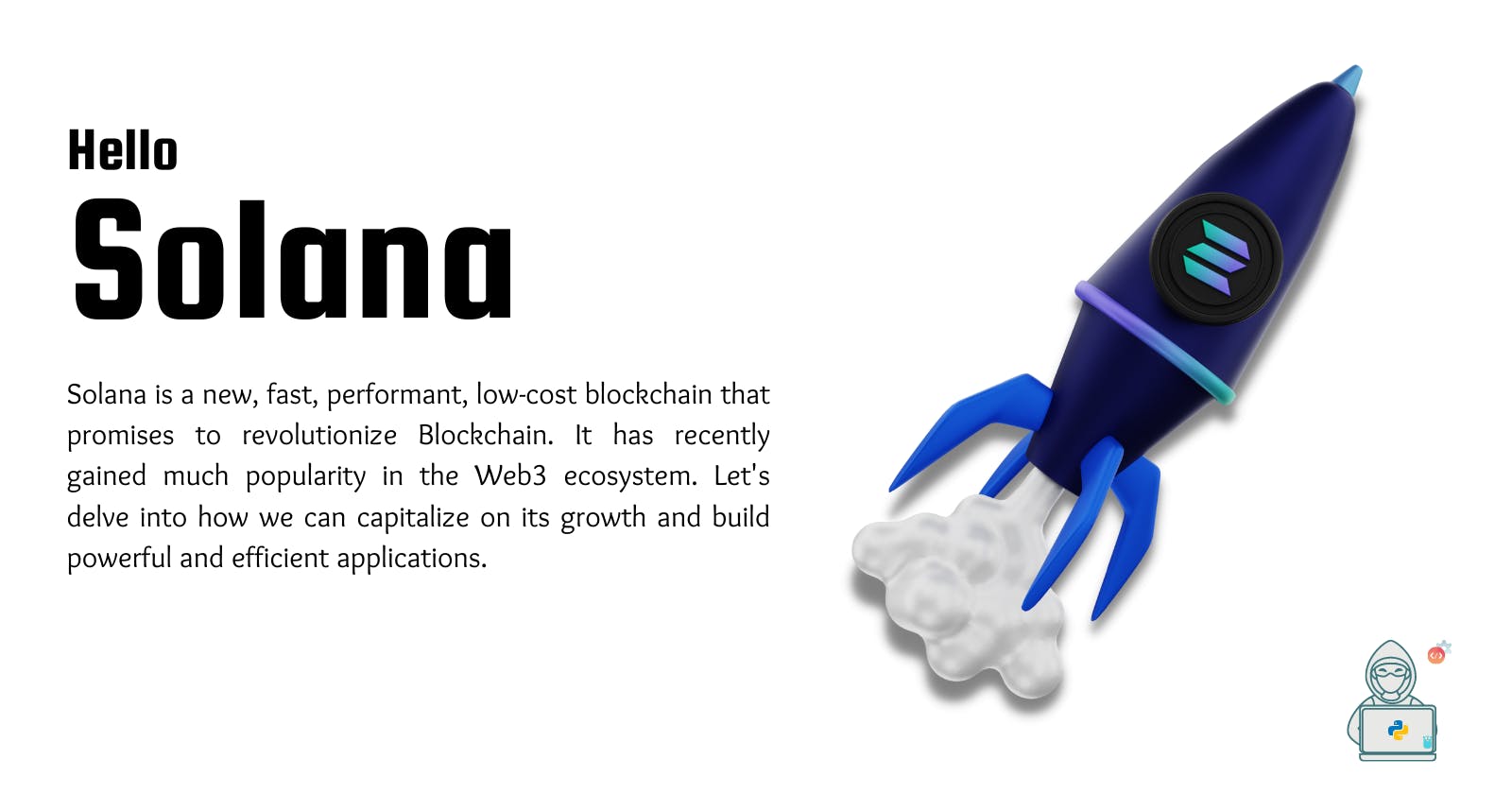Hello Solana
In this post, we delve deeper into the world of Solana, a fast, cheap and permissionless blockchain.
There has been a massive boom in the Blockchain and Web3 popularity. People have begun to obsess over NFTs, Cryptocurrencies, and blockchain as a whole. This boom has been particularly significant for the Ethereum network. It has become the de facto network for minting tokens, NFTs, and other projects. This popularity has, however, caused a massive strain on the network. The network has become riddled with critical issues like increasing gas prices. The network is unable to handle the sheer number of transactions that are queued on it. This has paved the way for alternatives like Solana, which has promised to fix most of these issues. Let's look into what it is and how can help make the technology more accessible.
What is Solana?
Solana is an open-source project implementing a new, high-performance, permissionless blockchain.
Solana Website
This is to say, that Solana is a faster and more performant blockchain than legacy blockchains. Solana is almost instantaneous when it comes to processing transactions. It also does so with a minimal gas fee. It can handle thousands of transactions per second. The chain has verified billions of transactions to date. It also uses Rust, which is an extremely fast and powerful language. This all enables Solana to be appealing to both developers and businesses. Solana also uses the much more liked Proof-Of-Stake Protocol and optimizes it via the Proof-Of-History Protocol.
Why is Solana amazing?
Some of the things that make Solana amazing are as follows:
Low Block time
Solana has a block time of 400 milliseconds, yes you read that right, 400 milliseconds. This is especially fast when you compare it to Ethereum's 10 seconds and Bitcoin's 10 minutes.
It can handle a lot of transactions
Solana boasts that it can handle 710,000 transactions per second. Right now, the network only handles roughly 50,000 transactions per second but the former number is possible with the current chain. Also for reference, 710,000 is roughly 3 times the amount of transactions Visa handles in a second.
Low cost
A transaction on the Solana network typically costs around $0.00025, which is hundreds (if not thousands) of times cheaper than a transaction on Ethereum ($30).
Rust usage
Okay, so this one is personal but Solana uses Rust for developing contracts. Rust has been growing in popularity and is a personal favorite of mine. (Expect a post on that too)
Developer Tools and Resources
The Solana team has an incredible number of resources like the Cookbook, SolDev, etc. These are available over here.
Innovations that complete Solana
Solana runs by the spirit of innovation, spending a ton of time and resources. The team has used very new and innovative approaches to optimize the network. These techniques, discussed below, are the key to its scalability, high performance, and time efficiency. I will only list them here but feel free to check out this brilliant article by Figment Learn to learn more.
- Proof-of-History (PoH)
- Tower BFT
- Gulfstream
- Sealevel
- Pipelining
- Turbine
- Cloudbreak
- Archivers
A great video explaining PoH by the Solana team is available here.
How do I get started?
To get started with Solana as a developer, I would recommend going through the Solana Cookbook and then joining the SolDev Community.
Fantastic Resources
These are some great resources for starting with Solana.
Closing Thoughts
Solana is definitely a project to look forward to. It will be interesting to see how it goes from here. Also, it will also be worth learning about and exploring the Solana ecosystem.

